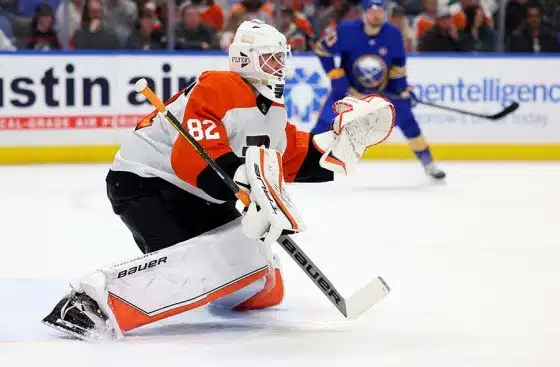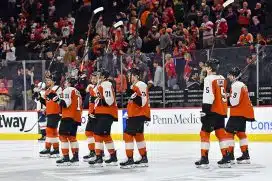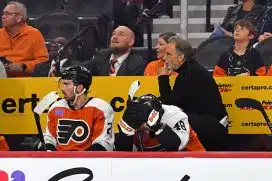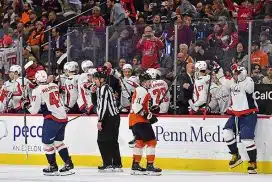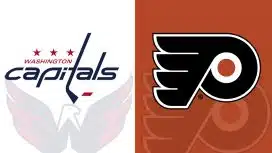Posted by Kevin Durso
Rob Manfred, Bud Selig and Michael Weiner were all key players in basball's new five-year collective bargaining agreement. (Courtesy of SI.com)
A strike-shortened season in 1994 cancelled the World Series. Since then, baseball has been committed to making sure that the Fall Classic gets played every year. With the agreement on a new collective-bargaining agreement, a five-year deal expiring in December 2016, major league baseball has done just that, marking another five years of peace between owners and players. That will put the league at over 20 years of peaceful negotiations.
In the new CBA, baseball has made several changes. For those of you who haven't been following the negotiations, or who may just not understand the new changes, here's a look at what was announced today.
Scheduling/Realignment/Postseason
- The Houston Astros will move to the American League West in 2013, evening the leagues to 15 teams apiece, and creating six divisions of five teams each. This will likely change the way interleague play is. While nothing has been formally announced, it is believed that the schedule will change to include 30 interleague games starting in 2013. Teams play 18 interleague games every season at the moment. Interleague games will also be played throughout the season, not at the set period in June as in previous seasons.
- For doubleheaders held prior to the September 1 expansion, rosters are allowed to expand to 26 players instead of the usual 25.
- The MLB Postseason is getting expanded again. First, two additional wildcard teams are being added, one in each league. If the new format had been in place in 2011, the Red Sox and Braves would have made the Postseason. The two wildcard winners will play a one-game playoff to decide the winner of the "wildcard round" then advance to the NLDS to face one of the three division winner. With five teams from each league advancing to the Postseason, baseball has also removed the inner-division rule, meaning teams like the Phillies and Braves could meet as early as the NLDS, not the NLCS as before. This has been confirmed for the 2013 season, but there is still a chance that baseball decides to implement it for the 2012 season.
Reserve System
- All eligible free agents can now enter the free agent pool the day the World Series ends without declaration. There will be a five-day "quiet period."
- The tender date for free agents is now December 2, starting in the 2012 season.
Draft Pick Compensation
- Starting with the 2012 season, the "Type A" and "Type B" system that had previously been used to rate free agents will be eliminated.
- Relief pitchers also are no longer labeled under this system, effective immediately. Teams that signed relief pitchers are subject to surrender a pick to the player's previous team if signed before deal was reached (i.e. Papelbon's deal with the Phillies means the Phillies lose their first-round pick to the Red Sox). Under the new system, teams like the Phillies, who likely lose Ryan Madson (previously labeled Type B) will still gain a draft pick, but from a random team, not the team that signs the player.
- Certain regulations apply to players who are worth compensation:
- A player must have played the entire season with the same team.
- A free agent is subject to compensation if his previous club "offers a one-year guaranteed contract with a salary equal to the average salary of the 125-highest paid players from the previous season." The offer must be made at the close of the "quiet period" and exercised within a seven-day period.
- A team that signs a player subject to compensation will still lose their first-round pick, provided it is not one of the Top 10 picks overall. If that is the case, that team can offer their second-highest pick as compensation.
- The player's former team will gain a pick which will be used after the first round of the draft in reverse order of winning percentage from the previous season.
- The minimum salary in major league baseball will increase from $414,000 to $480,000 in 2012. In 2013, it will increase again to $490,000. The league minimum salary tops out at $500,000 starting in 2014 and remaining the same until the deal expires.
- Salary arbitration eligible players (otherwise known as "Super Twos") percentage will be increased from 17 percent to 22 percent.
Draft
- The First-Year Player Draft will be held during the week of the All-Star Game. Draft picks can only sign minor league contracts. Teams are allotted a certain amount of money to offer for bonuses. That balance is only affected based on picks in the first ten rounds. Picks after the first ten rounds do not go toward that allotted balance. If teams go over that balance by 0 to 5 percent, they are subject to pay a 75 percent tax on overage. That same penalty is coupled with the loss of a first-round pick from 5 to 10 percent overage. 10 to 15 percent overage is subject to a 100 percent overage tax plus the addition of a second-round pick being recinded. And finally, teams that go over by 15 percent or more are subject to pay a 100 percent overage tax and the loss of two first-round picks.
- Additionally, clubs with the lowest revenue and market size have the opportunity to gain more draft picks through a lottery system.
International Players
- A similar signing bonus amount is also allotted for international players.
- While international players are not part of the First-Year Player Draft, there is a chance that by the end of the deal, the Draft could include international players.
Revenue Sharing
- The revenue sharing plan remains the same as it did in the previous deal, as "transfer amounts will grow with revenue and changes in disparity."
- The teams in the fifteen largest markets will no longer receive revenue sharing by the deal's end in 2016. That sharing will go to the lesser market teams.
Income Tax
- The luxury tax will remain at $178 million next season before increasing to $189 million for 2013. A huge note for teams that approach that luxury tax, like the Phillies: repeat offenders of the luxury tax rules will be taxed 50 percent, instead of the previous 40 percent that the Yankees have recently paid. First-time offenders only have to pay a 17.5 percent overage tax, but repeat offenders are subject to increasing increments of 30, 40, and finally 50 percent.
- Teams that finish under the income tax in one season will be judged as first-time offenders the next time they go over the income tax.
Health/Safety/Drugs
- All players participating in on-field activities (players, managers, coaches) are prohibited from using tabacco products when conducting an interview, appearing at a team event or interacting with fans.
- There is now a new mandatory evaluation program for players suspected of alcohol use.
- Effective immediately, no new players may use low-density maple bats.
- By the 2013 season, all players will begin wearing a newly designed helmet by Rawlings that is designed to protect against 100+ mph pitches.
- The concussion policy (7-day DL) has been improved and will be used once again in future.
- Starting in 2013, there will be a drug testing policy that includes hGH testing. This process will be tested during Spring Training of the 2012.
Instant Replay
- Instant replay has been expanded to include reviews for fair or foul balls and "trapped" ball plays.
Baseball's new changes bring about some favorable reviews and some questionable calls. Sure, aligning the divisions creates a balance that every other major sport has, so moving one National League team to the American League makes complete sense.
However, what do we need an extra playoff team for? Wasn't this Postseason a sign that the playoff system was fine just the way it was? Actually, what this Postseason didn't do was force the owners and players to change their minds about a playoff system that had change already in the works. This expansion was being talked about prior to this Postseason. Now, they have simply put it in effect. While I don't agree with the addition of another wildcard, the one-game playoff is a great way to implement the new system.
The expansion of instant replay forces serious consideration of the next step. The only other possible play left that could be deemed reviewable is safe/out calls. With the next expansion of replay, baseball may want to invest in a challenge system similar to the NFL. Give managers two challenges a game and use replay then. It keeps the human element in the game while using replay to ensure most calls on the field end up correct.
Finally, the interleague play increase is both good and bad. While it takes away from the division games, thus possibly eliminating rivalries, it does give teams a chance to face every team within a few years, and also could force closer races in all divisions, which could increase the number of races in the later stages of the season.
Most of these changes will go unnoticed or have little effect on the way the game is for the fans. But the fact that baseball managed to reach a deal with such ease after two extensive lockouts in other major sports shows that they not only still care about the good of the game, they made it a point to finish the deal as soon as possible. Now there are no worries for five years, and changes from now until then will likely be at a premium because of all of the changes already on hold for the 2013 season. Still, a lot is changing in baseball, but it is still going strong after all these years.

